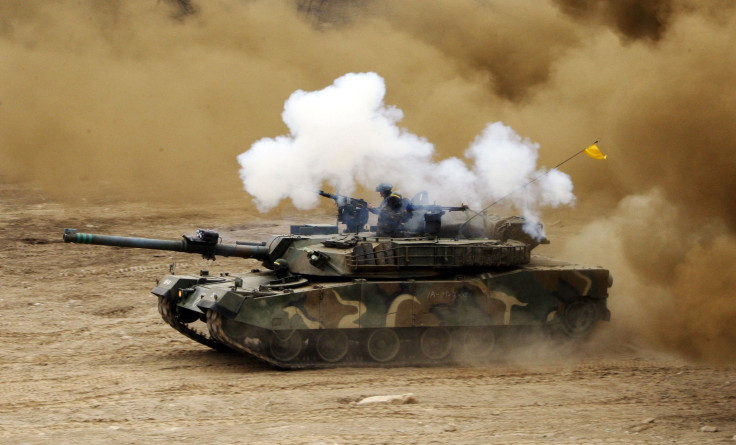US Sends Destroyer In Warning To North Korea

The United States said Monday it has seen no worrisome mobilization by the North Koreans despite their bloodthirsty rhetoric, but sent a destroyer to the coast. Meanwhile, South Korea's new president vowed to strike back quickly against any attack from the North.
"If there is any provocation against South Korea and its people, there should be a strong response in initial combat without any political considerations," South Korean President Park Geun-hye told the defense minister and senior officials at a meeting on Monday, the government said.
A U.S. defense official told Reuters the USS McCain, an Aegis-class guided-missile destroyer used for ballistic missile defense, was being positioned off the peninsula's southwestern coast.
"This is a prudent move that provides greater missile defense options should (they) become necessary," said the official, speaking on condition of anonymity. The ship was not expected to participate in any exercises, the official added.
In addition, the U.S. military command in South Korea announced Sunday its latest conspicuous display of firepower, sending F-22 stealth fighter jets to participate in annual U.S.-South Korean war games over the weekend, CBS reported. While a Pentagon spokesman said Monday morning that the F-22's presence over the peninsula were not a "recent addition to the exercise," Pyongyang calls the joint South Korean-U.S. war games a preparation for invasion.
South Korea also has changed its rules of engagement to allow local units to respond immediately to attacks, rather than waiting for permission from Seoul, Reuters reports.
South Korea has also threatened to target young North Korean leader Kim Jong-un and to destroy statues of the ruling Kim dynasty in the event of any new attack, a plan that has outraged Pyongyang.
Park’s blunt comments contrasted with the usually dismissive tone that South Korean leaders take toward the North’s threats, and reflected the criticism directed at her predecessor, Lee Myung-bak, when the South was seen as not retaliating after North Korea aimed an artillery barrage at a South Korean island in 2010, killing four people, The New York Times reports. Park’s election campaign last year focused on a promise not to be blackmailed by the North.
In another development, North Korea appointed a reformer and career technocrat to the ceremonial prime minister's job.
The appointment of former Premier Pak Pong-ju, a key confidant of the Kim leadership dynasty, to the post from which he was fired in 2007 appeared to further tighten the ruling family's grip on power. Pak previously was ousted from the job for failing to implement economic reforms.
North Korea says the region is on the brink of a nuclear war in the wake of U.N. sanctions imposed in response to its February nuclear test and a series of joint U.S. and South Korean military drills that have included a rare U.S. show of aerial power.
In Washington, the White House has said the United States takes seriously North Korea's war threats. But White House spokesman Jay Carney said on Monday: "I would note that despite the harsh rhetoric we are hearing from Pyongyang, we are not seeing changes to the North Korean military posture, such as large-scale mobilizations and positioning of forces."
North Korea further escalated its rhetoric on Saturday by saying it was entering a "state of war" with South Korea in response to what it termed the "hostile" military drills being staged in the South.
© Copyright IBTimes 2025. All rights reserved.





















